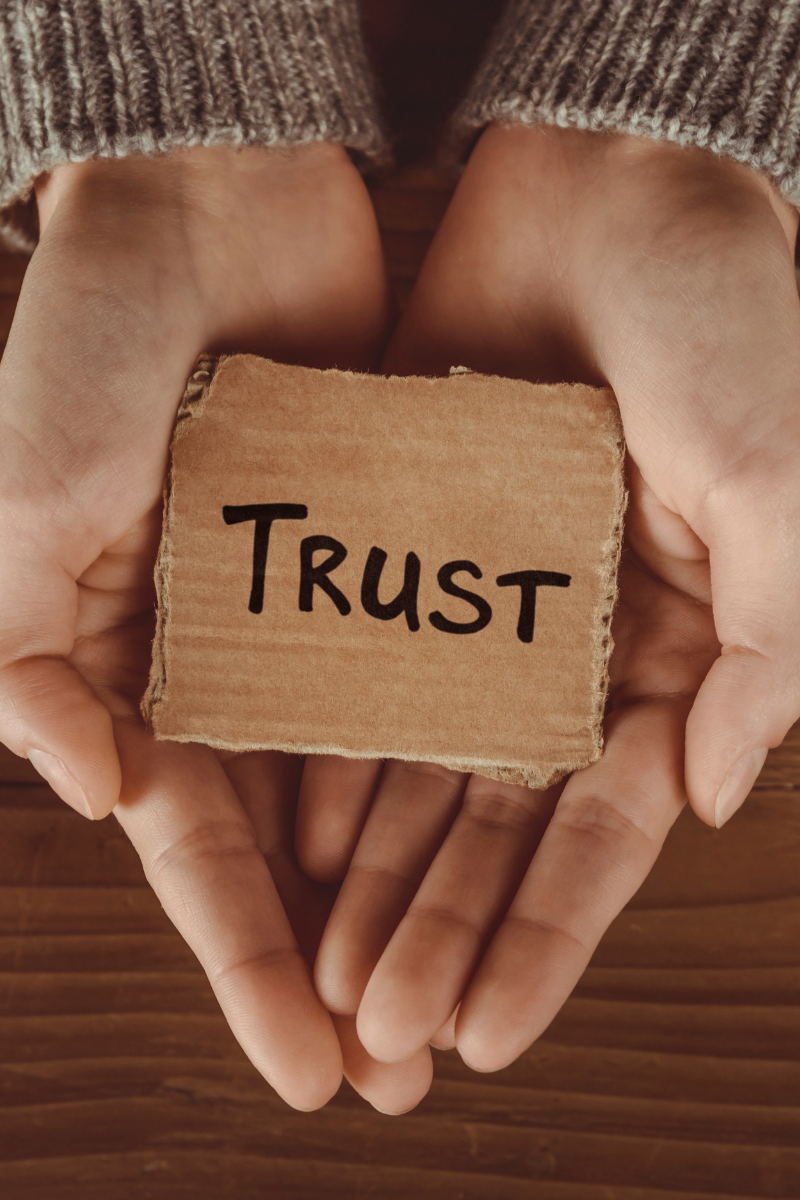Do You Trust Yourself?
I find myself getting in my own way a lot of the time when I'm building self-trust. Self-trust is deeper than doing what you say you're going to do. Yes, doing what we say we're going to do is very important, but we live in a fallen world, so life throws curve balls at us, and if the only measurement of our success was doing everything we planned, we'd be frustrated...because I've lived that way and still fall into that mentality, which is full of disappointment, frustration, and self-defeat. A great article I read on self-trust explained it like this:
"Self-trust is not trusting yourself to know all the answers, nor is it believing that you will always do the right things. It’s having the conviction that you will be kind and respectful to yourself REGARDLESS of the outcome of your efforts."
People that are grounded in self-trust have clarity and confidence in their choices. They remain curious about themselves and others so they learn from their experiences- the good and the bad, the successes and failures.
Trusting yourself is having the confidence that you've got what it takes to figure life out- whether it goes the way you want it to go.
What Self-Trust Looks Like
What's interesting is that self-trust happens internally and externally.
Internally it looks like:
being aware of your thoughts and feelings (positive & negative)
knowing your ethics and core values
positive self-talk
realizing your own personal energy limits
Externally it looks like:
expressing yourself openly and honestly
doing what you say you're going to do as much as you reasonably can
going after your dreams without letting yourself or others stop you
Self-trust doesn't just happen. It is developed intentionally. Again, just like working out your muscles, you must exercise.
8 Exercises to Build Self-Trust
So, let's dive into some exercises that help you create edits to build self-trust!
have compassion for yourself- when you mess up, don't avoid OR criticize- just acknowledge and decide what you'll do differently next time, give yourself a positive pep-talk, then move on.
start small with new endeavors- many times we jump in feet first to new ideas and ventures without being realistic about our energy levels and everything else we have going on, so give yourself permission to start small and build up from there.
take care of yourself- your mind, body and soul deserve to be well cared for. If we're being harsh to ourselves by what we say, not nourishing our bodies and withholding soul care, why would we trust ourselves? We would have to protect ourselves from ourselves, which is the opposite of self-trust. We must care for ourselves like we would a loved one.
embrace vulnerability- this is probably my least favorite way to build self-trust, but it's essential. Vulnerability is all encompassing, so to limit part of it, is to limit all of it. It takes bravery to be vulnerable. I love Brene Brown and her dedication to normalizing what it looks like to be vulnerable. Being vulnerable is to be authentic- which builds strong relationships and true connections.
hold true to your personal boundaries- Boundaries communicate to others what you accept into your life and what you don't. To have boundaries, is to be decisive about what you value.
create time to listen to your thoughts and explore your feelings- looking inward is important for so many reasons. I'm going to make a bold statement and say that the ONLY way to look inward is to have time alone. If it's been a minute since you've had time alone, I'd argue that you haven't looked inward and are probably feeling unsettled in some way. You don't have to spend hours and hours by yourself, but give yourself at least 20 minutes. I know it can seem like an impossible task, but you're worth it. Your self-trust is worth it and the people that rely on you are worth taking time to look inward to know what's going on in your own head.
practice saying and doing things that express what you think and who you are- I'm a natural people-pleaser, so I have to be very aware of self-censoring. Self-censoring is a great tool to use occasionally, but not all the time. Self-censoring prevents us from showing up as our true self and hides aspects that we're afraid will be rejected or criticized.
accept that you're not always going to act or do everything exactly the way you want- As someone who struggles with perfectionism, this is a hard one, but SOOOO worth the effort to overcome when it comes to building self-trust. The more I'm willing to accept my mistakes and failures, the more compassion I have for myself and others. I also trust myself more to handle things, which decreases worrying and anxiety!
Trusting yourself will benefit not only you, but also your loved ones!


